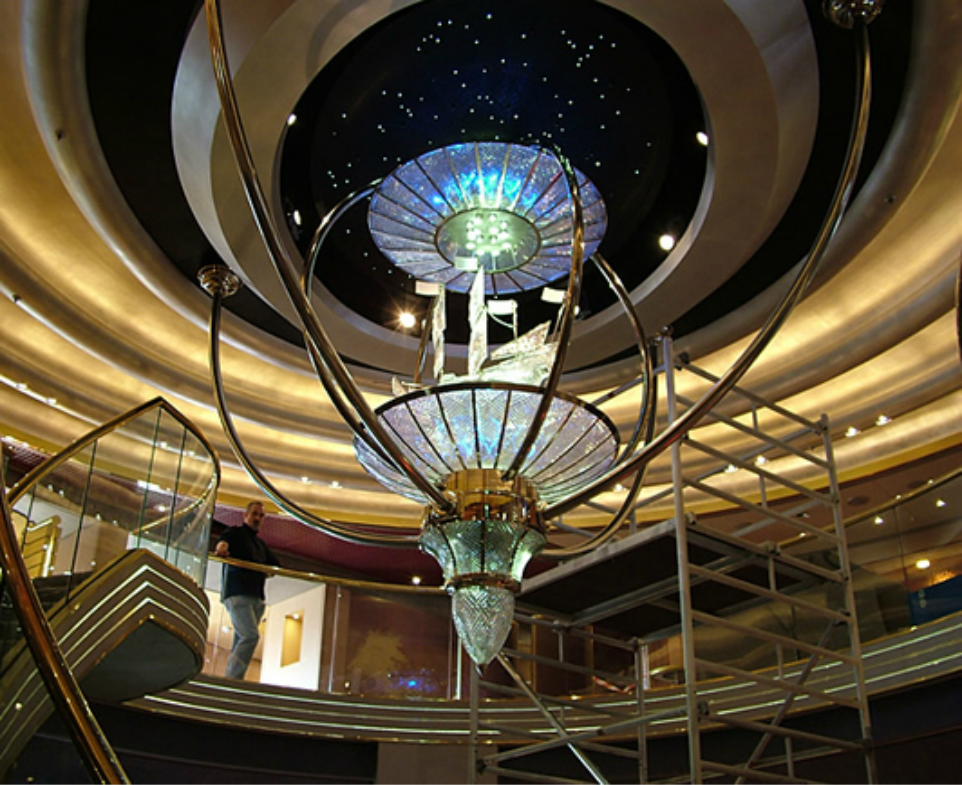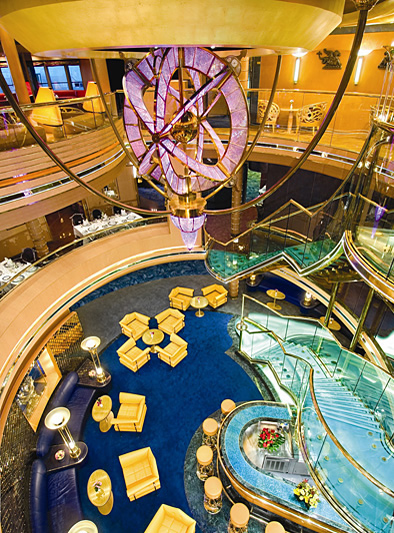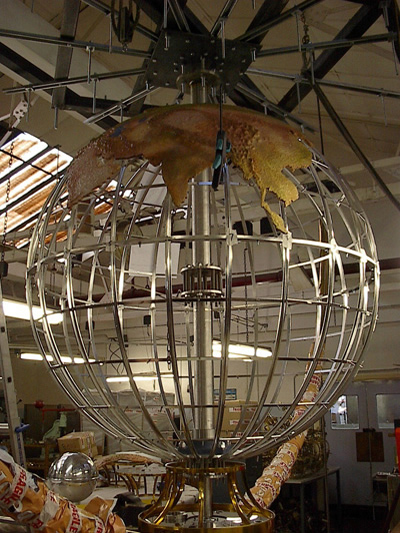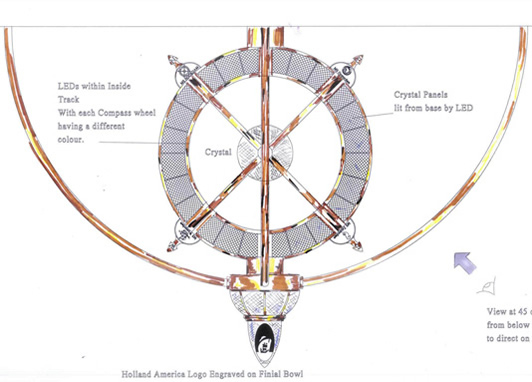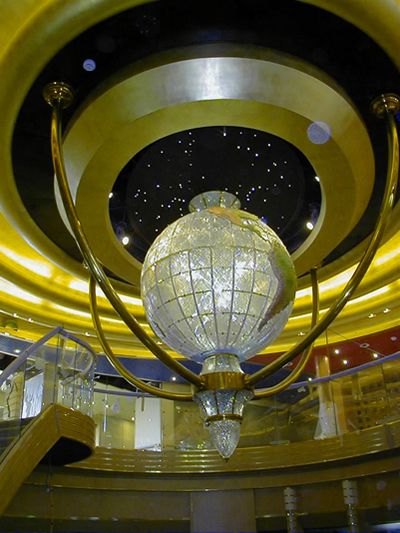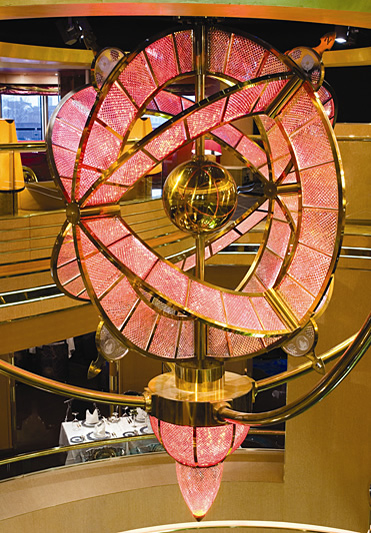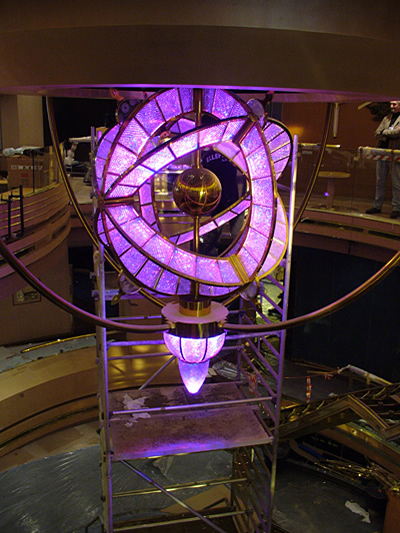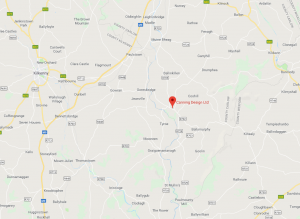The Holland America Line was founded in 1873 as the Dutch-America Steamship Company a shipping and passenger line. Because it was headquartered in Rotterdam and provided service to the Americas, it became known as Holland America Line (HAL).
Today with a fleet of 14 luxury cruise ships, and an annual passenger load of close on 800,000 HAL is the premium 5 star luxury cruise line company of the Carnival fleet. In 2000 Holland America embarked on their most ambitious new build program that of their new Vista series Ships. A series that was to begin with the launch of the Zuiderdam in 2002 and end with the launch of the Noordam in 2007. HAL approached Waterford Crystal to tender designs for the Atrium area of the 4 ships.
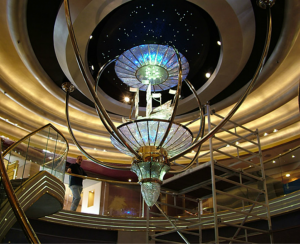
The designs submitted by Billy Canning were ambitious he recalls “The complexities of the design and its ultimate location were a challenge, if you consider that our design proposals were to rotate, change colour while all the time remaining safely attached to the Atrium ceiling which itself by virtue of being a ship was constantly moving also.”
The first of the Vista Class Ships was the Zuiderdam launched in 2002 “Our first piece was on the Zuiderdam, and here I used the Seahorse which of course is synonymous with Waterford Crystal and also being a creature of the seas I felt it symbolized graceful life within our Oceans, moving over the Ocean floor underneath glittering Coral Architecture. , I felt that over the four ships I would begin with a symbol of what was there before any of us traversed the seas or set about crafting crystal and I think this mystical ancient creature captures that symbolism perfectly.”
The second in the series was the Oosterdam launched in 2003. “On the Oosterdam we have the Planet Earth and illuminated on it we have the home of all seafarers The Oceans. With crystal you could not have a better medium to illustrate the Oceans and it’s moods , combined with the famous crystal diamond hand cutting and internal lighting it brings to life the magnificence of the Oceans, and the ever changing home of the ship and the lives it carries.
The third ship in the series was the Westerdam launched in 2004. “The piece features a replica of the first HAL ship a merchant vessel De Halve Maen (Half Moon) which forms part if the HAL logo, this piece was to display the Dutch mastery of the seas and the piece rotates underneath a fibre optic night sky, by which it navigated it’s course all those years ago.”
The final ship in the series was the Noordam launched in 2007. ” I chose a gyroscope/compass to form the design for this ship, the 4 Vista ships were named after points of the compass. Zuider (South) Ooster (East) Wester (West) and Noor (North) so elements of all ships were included in the design. The piece used LED technology for the changing of colours, I wanted it to reflect the moods of the seas, the moods and lives of it’s passengers as it slowly rotated underneath the constellation of fibre optic stars.”
Please take time to look at the mini documentary which chronicles the project and it’s complexities from start to finish.
Statistics
Each sculpture took 1 year to design, build, and install.
Each sculpture weighs approx. 3 metric tonnes.
Lighting effects on the pieces use LED and Fibre optic technology.
Metal frame construction was by Reid Lighting London now part of Dernier and Hamlyn
All metal and crystal design by Billy Canning while at Waterford Crystal.

